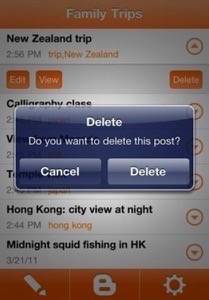Google’s Blogger has found a way to handle local government takedown requests similar to the way Twitter now does. It will now start redirecting readers to country-specific top-level domains (TLD) instead of the usual blogspot.com domain. It does so based on the location of the user’s IP address, just as many other Google services do. This gives Google the “flexibility” to comply with removal requests according to local laws.

But don’t start your knee-jerking just yet (as so many did with Twitter’s local compliance policy). This is a way around censorship. Would you rather Blogger and Twitter be blocked in some countries outright? As Google Operating System (the original purveyor of this fine story) points out, the content at the “blogspot.com” domain will continue to exist. “Content removed due to a specific country’s law will only be removed from the relevant ccTLD,” Google explains in its support document.
Minimum Viable Censorship

There are still some questions here, as there were in Twitter’s case. As Google says, a takedown request will only affect the content at the TLD of the country whose government requests the takedown. Does that mean users in that country will still be able to access content at other domains? Obviously, Google can’t be straightforward about that if the answer is “yes,” so the fact that it doesn’t explicitly say “no” sounds good.
In fact, it makes clear that users can specifically request a particular country’s version of a Blogger site by using a “No Country Redirect” URL. If you request http://[blogname].blogspot.com/ncr,” it will go to the .com (U.S.) version of the site no matter what. It sets a short-term cookie to prevent the browser from redirecting that blog to a local domain. Whether that version will be accessible within a blacked-out country is unclear, so let’s test it!
Better Than Nothing (And Then Some)
The idea of Web companies complying with censorship requests sounds icky. But too many people gave knee-jerk objections to Twitter’s policy last week without considering what it actually does. Both Twitter and Google (at least with Blogger) have found ways around censoring this content altogether while still complying with local laws. The content isn’t lost. It’s still accessible outside of that area. Blogger sites may still be accessible within some blackout areas if users request a different domain.
The alternative, in some countries, would be to block the entire service. There’s no way that’s good for free speech. One could argue that doing business at all in a country that supports censorship is wrong for a communication company. But then put yourself in the local users’ shoes and consider which alternative is preferable. The shame here is on the governments who censor their people, not on the companies sneaking free speech past them however they can.
What do you think of Blogger and Twitter’s new censorship policies? Sound off in the comments.
















